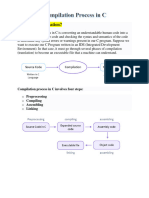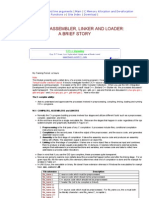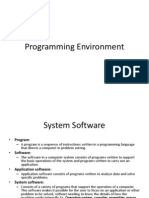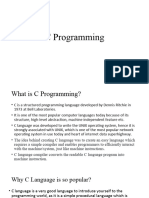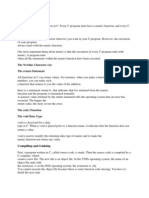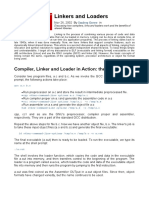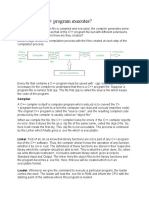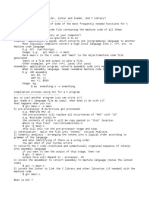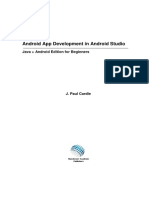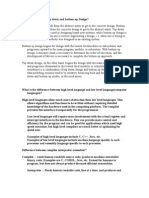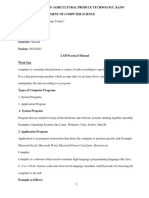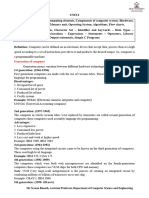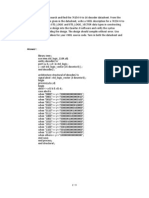0% found this document useful (0 votes)
72 views4 pagesCompilation Process in C
The compilation process in C involves converting source code into object code through four main steps: Preprocessing, Compiling, Assembling, and Linking. The preprocessor removes comments and processes directives, the compiler converts the code to assembly, the assembler generates object code, and the linker combines this with library functions to produce an executable file. The output executable file retains the original source file's name but has a different extension, such as '.exe' for DOS or 'a.out' for UNIX.
Uploaded by
nayakkrish446Copyright
© © All Rights Reserved
We take content rights seriously. If you suspect this is your content, claim it here.
Available Formats
Download as PDF, TXT or read online on Scribd
0% found this document useful (0 votes)
72 views4 pagesCompilation Process in C
The compilation process in C involves converting source code into object code through four main steps: Preprocessing, Compiling, Assembling, and Linking. The preprocessor removes comments and processes directives, the compiler converts the code to assembly, the assembler generates object code, and the linker combines this with library functions to produce an executable file. The output executable file retains the original source file's name but has a different extension, such as '.exe' for DOS or 'a.out' for UNIX.
Uploaded by
nayakkrish446Copyright
© © All Rights Reserved
We take content rights seriously. If you suspect this is your content, claim it here.
Available Formats
Download as PDF, TXT or read online on Scribd
/ 4







